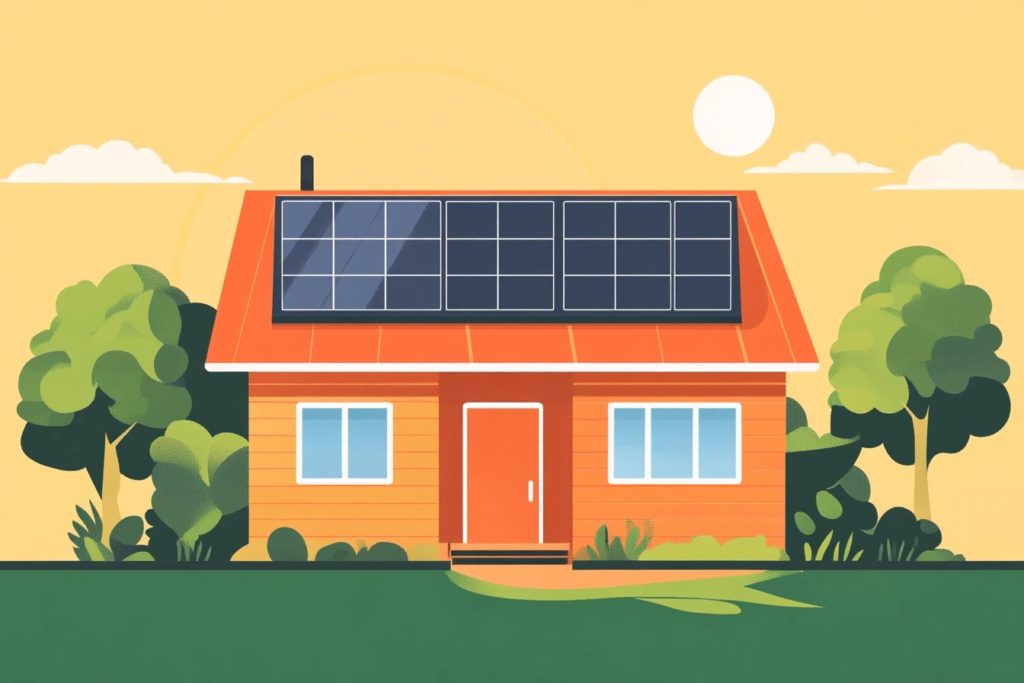In general, we find that the public’s knowledge base regarding the benefits of solar energy expands a bit more with each passing year. Today, most people seem to understand that installing a residential solar power system can help them save money compared to buying energy from the utility company and also protect our environment by avoiding fossil fuels.
That said, many homeowners still have plenty to learn regarding the wide variety of benefits of residential solar panels. What are the benefits of solar energy? In addition to saving money and reducing your carbon footprint, you can obtain financial support from the government, improve the resale value of your home, and achieve energy independence.
Let’s discuss the wide-ranging benefits of solar energy to the environment and your wallet. Is installing a residential solar energy array the right move for you?
The Benefits of Solar Energy
Saving Money on Electric Bills
If you’re a homeowner, you already know how expensive buying electricity from a traditional utility company can be. For many homeowners, the electric bill is the most costly bill to arrive each month. However, installing even a relatively small solar energy system can generate enough energy to power your home and even sell some energy back into the grid, if you live in an area with net metering regulations.
Net metering is an agreement with your power company that trades credit on your electric bill for the extra energy your system produces. In other words, the agreement allows a homeowner to sell the power that can’t be used on sunny days in exchange for energy that can’t be generated at night or on overcast days. You can save so much money on your electric bills that the return on investment often exceeds 10% per year, making residential solar energy one of the best investments a homeowner can make.
Government Incentives and Financial Support
We’ve only touched the tip of the iceberg regarding the financial benefits of solar energy. That’s because federal, state, and even local government entities financially support homeowners who install residential solar panels. The federal government’s solar tax credit runs through the end of 2023 and provides a 26% tax credit for systems installed by December 31, 2022, and 22% for systems installed in 2023.
Update: In August 2022, the solar tax credit was increased to 30% and extended through 2032.
In addition, each state has its own regulations regarding residential solar incentives. Depending on your state, you may have access to some of these programs:
- Solar Renewable Energy Certificates – This program exchanges certificates (worth $300 or more in some states) to homeowners in return for 1,000 kilowatt-hours of solar energy each.
- Performance-Based Incentives – Some states pay homeowners incentives tied to the output of their residential solar systems. These programs offer a predetermined ratio of dollars per-kilowatt hour.
- Subsidized Solar Loans – This type of loan makes it easier for homeowners to afford renewable energy upgrades to their homes, allowing them to generate electricity while increasing the value of their homes.
Increasing Your Home’s Resale Value
Do people prefer to buy homes that have residential solar energy systems installed? According to Zillow, the answer is a resounding “yes.” In 2019, Zillow published a study that determined adding solar panels to a home increases its value by more than 4%, providing a nearly $10,000 boost to the home’s sale price.
In some states, the improvement to your home’s resale value can be even higher. For example, homes in New Jersey gain nearly 10% in resale value if they have solar panels installed! How much value you can expect a residential solar array to add to your home varies based on the size of the system and how much energy costs in your area, but for the most part, 4% is a reasonable expectation.
Reducing Your Home’s Carbon Footprint
The benefits of solar energy to the environment are extensive and could fill their own article. That said, reducing the carbon footprint of your home is one of the absolute best reasons for installing a rooftop solar energy array. As far as the steps one individual can take to protect our environment, converting your home to solar power is near or at the top of the list. If you want to do your part to keep our air and water healthy for generations to come by reducing your carbon emissions, installing a residential solar power system is a great place to start.
Achieving Energy Independence
This benefit ties into a couple of our previous categories, but it’s so important that we felt the need to highlight it on its own. So far, we’ve discussed the individual benefits of solar energy, but now it’s time to think bigger. Every time an American homeowner installs a residential solar energy array, the United States comes one small step closer to energy independence.
Instead of being reliant on foreign countries to sell us fossil fuels at whatever they deem to be a fair price, we can create our own electricity and someday end our need for imported petroleum and oil. Energy independence creates economic security and environmental responsibility for our nation, which is something that people on every part of the political spectrum can agree is worth pursuing.
In Conclusion
So, what are the benefits of solar energy? As you can see, there are quite a few of them, and each one on its own presents a convincing argument in favor of residential solar power installation. If you combine them, they present an overwhelmingly positive picture of how you can fully take advantage of the benefits of residential solar panels.
Do you still have questions about the benefits of solar energy? Contact LGCY Power today at 855.391.1038 and we’ll be happy to discuss this topic with you in-depth. We can even set up an in-person appointment with one of our local solar installers to analyze your home and design the ideal solar power array for your needs.





